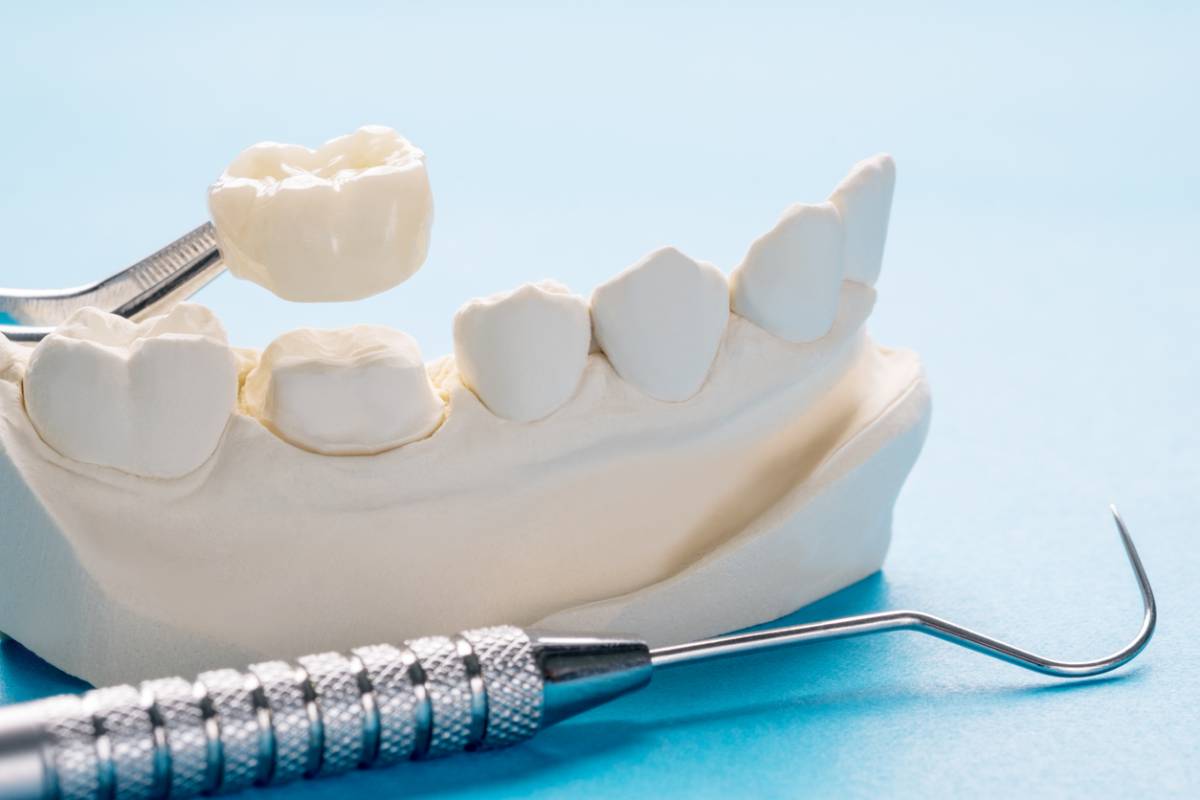Dental crowns are also referred to as “caps.” They are often a tooth-colored prosthetic that covers a damaged tooth. There are a variety of types of crowns that come in a number of different materials. Below you will find the most common dental crowns types and guide to help you determine which one is right for you.
Dental Crowns Types and Guide
Dental crowns can be made from a variety of materials. Some of the most common include ceramic, porcelain, metal, zirconia, composite resin, or a combination of materials. The type of material used depends on a variety of factors. Your dentist will consider your preference, but they must also consider the following: the position of your gum tissue, function of your tooth that requires a crown, the amount of natural tooth remaining, the color of your teeth surrounding the tooth that needs a crown, the location of your tooth, and how much tooth will show when you smile.
A Type Overview
In addition to the type of material used for the crown, there are a variety of different types of crowns.
- Full Crown: A full dental crown is the most common type as it covers your entire tooth. It is designed to look and function just like your natural tooth to fully restore it.
- Temporary Crown: A temporary crown is only used for a short period of time. It is placed on your tooth using a removable adhesive until your permanent crown is ready.
- One-Day Crown: While dental crowns often take two separate appointments to complete, there are same-day crowns. This means that you can get a crown in a single appointment. Computer-aided design and manufacturing technology can create and design a crown from a block of ceramic in the dental office in just one day.
- Onlay Crown: An onlay crown (also referred to as a “3/4 crown”) covers only a portion of your tooth. Sometimes a full crown isn’t needed and this is a great option to restore the damaged portion of the tooth.
Dental Crown Treatment
Dental crowns in Yucaipa are beneficial for a variety of dental issues. If you experience any of the following, dental crown treatment may be right for you:
- Chipped or cracked teeth
- Discolored or stained teeth
- Gaps in your teeth
- Missing teeth
- Tooth decay
- Recent dental implant treatment, bridge, or root canal treatment
Before moving forward with dental crown treatment, a dentist in Yucaipa needs to determine if you are a good candidate for the procedure. Once it has been determined, the treatment itself takes two visits. The first visit involves imaging and a thorough exam. The dentist will remove any tooth decay and prep the tooth with a filling to shape it. Impressions and a bite model are taken so the crown can be curated specifically for you. A temporary crown is placed on your tooth until your second appointment. At the second appointment, the dentist will remove the temporary crown and bond the permanent crown on top of your tooth.
The treatment is highly effective and long-lasting if you take good care of your oral health. Dental crowns can list up to 30 years, so It’s important to take good care of your teeth to ensure the results last. You should maintain a healthy daily oral hygiene routine and attend your regular dental checkups. This includes brushing at least twice a day for two minutes, in addition to flossing at least once a day. You should avoid hard foods as they can chip or crack your crowns. If you grind your teeth at night, you may also need a nightguard to protect your crown.

